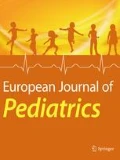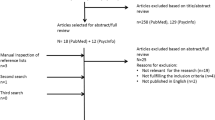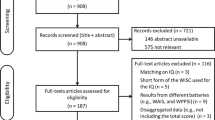Abstract
The main goal of the study was to assess the effect of exclusive breastfeeding on the neurodevelopment of children over a 7-year follow-up period and to test the hypothesis that the observed cognitive gain in breastfed children in the first years of life is a strong predictor of their cognitive development trajectory, which may be continued in later life. The analysis is based on data from the 7-year follow-up of 468 term babies (>36 weeks of gestation) born to non-smoking mothers participating in an ongoing prospective cohort study. The cognitive function of children was assessed by psychometric tests performed five times at regular intervals from infancy through the preschool age. The study included valid neurodevelopmental assessment of the children—443 participants were evaluated least twice; 425, three times; and 307, five times in the follow-up period. The association between the cognitive achievements of preschool age children and exclusive breastfeeding of various durations was performed using the generalized estimating equation longitudinal model, adjusted for major confounders such as maternal education, gender, parity, and weight gain in pregnancy. Children breastfed exclusively for up to 3 months had intelligence quotients (IQs) that were on average 2.1 points higher compared to the others (95% confidence interval (CI), 0.24–3.9); children breastfed for 4–6 months scored higher by 2.6 points (95% CI, 0.87–4.27); and the benefit for children breastfed even longer (>6 months) increased by 3.8 points (95% CI, 2.11–5.45). Other predictors were maternal education, gender of the child, having an older sibling, and weight gain during pregnancy. The results of the study support the WHO expert recommendations on exclusive breastfeeding for 6 months; moreover, they provide evidence that even a shorter duration of exclusive breastfeeding in early infancy produces beneficial effects on the cognitive development of children. The breastfeeding-related IQ gain observed already at the age of 1 was sustained through preschool age, and the difference in terms of IQ score between breastfed children and the reference group (mixed breastfeeding) held constant over the whole preschool period.
Similar content being viewed by others
References
Agostini C, Marangoni F, Lammardo AM et al (2001) Breastfeeding duration, milk fat composition and developmental indices at 1 year of life among breastfed infants. Prostag Leukptr Ess 64:105–109
Anderson J, Johnstone B, Remly D (1999) Breastfeeding and cognitive development: a meta-analysis. Am J Clin Nutr 70:575–535
Bayley N (1993) Bayley Scales of Infant Development. Second edition. Manual. The Psychological Corporation, San Antonio
Birch EE, Birch DG, Hoffman DR et al (1992) Dietary essential fatty acid supply and visual acuity development. Invest Ophth Vis Sci 32:3242–3253
Carlson SE, Werkman SH, Rhodes PG et al (1993) Visual-acuity development in healthy preterm infants: effect of marine-oil supplementation. Am J Clin Nutr 58:35–42
Crawford MA (1993) The role of essential fatty acids in neural development: implications for perinatal nutrition. Am J Clin Nutr 57(suppl):703S–710S
Deary IJ (2010) Cognitive epidemiology: its rise, its current issues and its challenges. Pers Indiv Differ 49:337–343
DeMauro GE (2001). Review of the Test of Nonverbal Intelligence, Third Edition. In: The Fourteenth Mental Measurements Yearbook (Plake BS, Impara JC, eds). Lincoln, NE:Buros Institute of Mental Measurements.
Der G, Batty GD, Deary IJ (2006) Effect of breastfeeding on intelligence in children: prospective study, sibling pairs analysis, and meta-analysis. BMJ. doi:10.1136/bmj.38978.699583.55
Farguharson J, Jamieson EC, Abbasi KA et al (1995) (1995) Effects of diet on fatty acid composition of the major phospholipids of infant cerebral cortex. Arch Dis Child 72:198–203
Hardin JW, Hilbe JM (2000) Generalized linear models and extensions, 2nd edn. Stata Press, College Station
Hoefer C, Hardy MC (1929) Later development of breast fed and artificially fed infants. J Am Med Assoc 92:615–620
Hunter JE (1986) Cognitive ability, cognitive aptitudes, job knowledge, and job performance. J Vocat Behav 29:340–362
Jansen J, de Weerth C, Riksen-Walraven M (2008) Breastfeeding and the mother–infant relationship—a review. Dev Rev 28:503–521
Jedrychowski W, Whyatt RM, Camman DE et al (2003) Effect of prenatal PAH exposure on birth outcomes and neurocognitive development in a cohort of newborns in Poland. Study design and preliminary ambient data. Int J Occup Med Environ Health 16:21–29
Jing H, Gilchrist JM, Bagder TM et al (2010) A longitudinal study of differences in electroencephalographic activity among the breastfed, milk formula-fed infants during the first year of life. Early Hum Dev 86:119–125
Kagan J, Moss H (1959) Parental correlates of child’s IQ and height: a cross-validation of the Berkeley growth study results. Child Dev 30:325–332
Lundqvist-Persson C, Lau G, Nordin P et al (2010) Early behaviour and development in breastfed premature infants are influenced by omega-6 and omega 3-fatty acids. Early Hum Dev 86:407–412
Makrides M, Neumann MA, Byard RW et al (1994) Fatty acid composition of brain, retina, and erythrocytes in breast- and formula-fed infants. Am J Clin Nutr 60:189–194
Meedya S, Fahy K, Kable A (2010) Factors that positively influence breastfeeding duration to 6 months: a literature review. Women Birth 23:135–145
McAskie M, Clarke A (1976) Parent-Offspring resemblances in intelligence-Theories and evidence. Brit J Psychol 67:243–273
McCall RB (1997) Childhood IQs as predictors of adult educational and occupational status. Science 197:482–483
Moffitt TE, Gabriella WF, Mednick SA et al (1981) Socioeconomic status, IQ, and delinquency. J Abnorm Psychol 90:152–156
Morley R, Cole TJ, Powell R et al (1988) Mother’s choice to provide breast milk and developmental outcome. Arch Dis Child 63:1382–1385
Neuringer M, Connor WE (1986) Omega-3 fatty acids in the brain and retina: evidence for their essentiality. Nutr Rev 44:285–294
Noble K, McCandliss B (2005) Reading development and impairment: Behavioral, social, and neurobiological factors. J Dev Behav Pediatr 26:370–378
Uauy R, Birch DG, Birch EE et al (1990) Effect of dietary omega-3 fatty acids on retinal function of very-low-birth-weight neonates. Pediatr Res 28:485–492
Wechsler D (1974) Manual of the Wechsler Intelligence Scale for Children-Revised. Psychological Corporation, New York
Wechsler D (2004) Wechsler Intelligence Scale for Children, 4th edn. Pearson Assessment, London
Whitehouse AJO, Monique Robinson M, Lia J et al (2011) Duration of breast feeding and language ability in middle childhood. Paediatr Perinat Ep 25:44–52
WHO Working Group on Infant Growth (1994) An evaluation of infant growth. World Health Organization, Geneva
WHO (2001) The optimal duration of exclusive breastfeeding. Reports of a WHO systematic review. World Health Organization, Geneva
Acknowledgments
This is part of an ongoing comparative longitudinal investigation on the health impact of prenatal exposure to outdoor/indoor air pollution in infants and children, conducted in New York City and Krakow. The study received funding from an RO1 grant entitled, “Vulnerability of the Fetus/Infant to PAH, PM2.5 and ETS” (5 RO1 ES10165 NIEHS; 02/01/00–01/31/04) and The Gladys T. and Roland Harriman Foundation. Principal investigator is Prof. FP Perera, and co-investigator is Prof. WA Jedrychowski.
Conflict of interest
Authors declare no financial relationship with the organization that sponsored the research.
Author information
Authors and Affiliations
Corresponding author
Rights and permissions
About this article
Cite this article
Jedrychowski, W., Perera, F., Jankowski, J. et al. Effect of exclusive breastfeeding on the development of children’s cognitive function in the Krakow prospective birth cohort study. Eur J Pediatr 171, 151–158 (2012). https://doi.org/10.1007/s00431-011-1507-5
Received:
Accepted:
Published:
Issue Date:
DOI: https://doi.org/10.1007/s00431-011-1507-5




